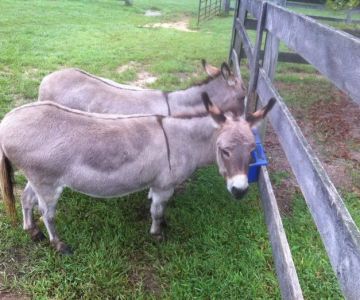What Does a Veterinary Social Worker Do? Understanding Their Role and Impact
When we think of the animal care industry, we often picture veterinarians, technicians, and caretakers. However, one important role in this field that is often overlooked is that of the veterinary social worker. In this article, we’ll explore the essential role of veterinary social workers, the tasks they perform, and the valuable contributions they make to the well-being of both animals and people. As someone deeply involved in the care and understanding of animals, I can tell you that this profession brings a unique perspective to the world of veterinary science, balancing empathy, animal welfare, and human emotional health.
1. Understanding the Role of a Veterinary Social Worker
A veterinary social worker focuses on the emotional, psychological, and social aspects of both animal care and the human-animal relationship. They assist individuals and families who may be struggling with the emotional challenges of caring for a pet, such as coping with the illness or loss of an animal. Veterinary social workers are often employed in veterinary clinics, animal shelters, and even research settings where animals are involved.
Their role is multifaceted. They provide counseling and emotional support to pet owners, help resolve conflicts regarding pet care, and guide families through difficult decisions related to their pets’ health and welfare. For example, a veterinary social worker might support a family who needs to make the heartbreaking decision to euthanize their pet. In addition to supporting families, they also help veterinary staff cope with the emotional stress of working in a field that deals with the loss of animals.
2. Key Responsibilities of a Veterinary Social Worker
The tasks and responsibilities of a veterinary social worker extend beyond just offering counseling. Here are some of their core responsibilities:
- Providing emotional support to pet owners: Helping clients navigate grief, anxiety, or guilt associated with their pets' health conditions, injury, or death.
- Supporting veterinary staff: Helping the staff cope with the emotional challenges of working in a high-stress environment where euthanasia, trauma, and end-of-life care are common.
- Conflict resolution: Mediating conflicts between pet owners, shelters, and veterinarians regarding the care or treatment of animals.
- Helping with ethical decision-making: Assisting clients in making difficult decisions about the health and well-being of their pets.
- Promoting human-animal bonds: Encouraging pet owners to develop strong, positive relationships with their animals for the benefit of both.
3. The Importance of Veterinary Social Work
Veterinary social workers play a crucial role in bridging the emotional and social aspects of pet ownership with the clinical side of veterinary care. Their work not only aids pet owners but also creates a more supportive and understanding environment for veterinary staff. One of the most significant contributions they make is helping individuals and families handle the difficult emotions associated with pet care, whether it’s dealing with a terminal illness, making the decision to put a pet down, or coping with the loss of a beloved animal.
For example, I remember a case where a veterinary social worker helped a family struggling to make the decision to euthanize their dog, who was suffering from an incurable disease. The social worker guided them through their emotions, provided coping strategies, and helped them feel more at peace with their decision. It’s moments like these that show just how vital this role is for both the well-being of the pets and their human companions.
4. Skills and Qualifications of a Veterinary Social Worker
To become a veterinary social worker, one must have a unique blend of skills in both social work and animal care. Here are some of the essential qualities needed for success in this field:
- Compassion and Empathy: The ability to provide emotional support and understand the feelings of pet owners and veterinary staff.
- Strong communication skills: Being able to communicate effectively with both people and animals to understand their needs and concerns.
- Problem-solving abilities: The ability to help families make difficult decisions and resolve conflicts in a way that is beneficial to everyone involved.
- Experience in social work: A background in social work, particularly in areas such as grief counseling, family therapy, or crisis intervention, is crucial.
- Understanding of animal welfare: A solid knowledge of animal care and veterinary procedures is important to provide informed support.
5. Becoming a Veterinary Social Worker
If you are interested in pursuing a career as a veterinary social worker, the path typically involves obtaining a degree in social work, followed by specialized training or experience in animal care and welfare. Most veterinary social workers hold a Master’s degree in social work (MSW) and may also have certifications or training related to animal care or grief counseling.
Additionally, gaining hands-on experience working with animals, whether in a shelter, veterinary clinic, or other animal care setting, is vital to understanding the specific challenges that come with this type of work. Some veterinary social workers also specialize in certain areas, such as pet loss grief counseling or helping with the emotional needs of service animal handlers.
6. Real-Life Impact of Veterinary Social Workers
In real-life scenarios, veterinary social workers make a tangible difference. I’ve witnessed how their support has helped people navigate challenging times. One particularly moving case involved a veterinary social worker assisting an elderly woman who was devastated after her dog had to be euthanized. The social worker helped her process her grief, provided resources for pet loss support, and helped her find comfort in knowing she had done the best for her pet.
7. Conclusion: The Vital Role of Veterinary Social Workers
Veterinary social workers are indispensable in ensuring the emotional health of pet owners and veterinary professionals. Their work helps to improve the quality of life for both animals and their human companions by addressing the emotional and social challenges of pet care. If you’re interested in helping others navigate the often difficult world of animal care, becoming a veterinary social worker might be a rewarding and impactful career choice.











